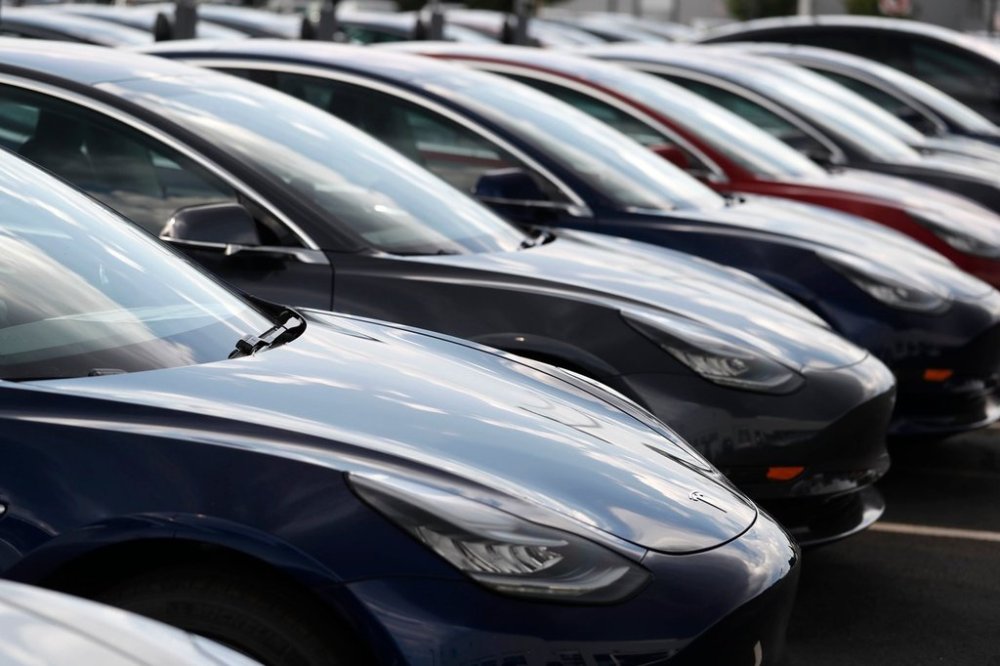Lawsuit blames Tesla design flaws for crash that killed Washington state woman, injured her husband
Advertisement
Read this article for free:
or
Already have an account? Log in here »
To continue reading, please subscribe:
Monthly Digital Subscription
$0 for the first 4 weeks*
- Enjoy unlimited reading on winnipegfreepress.com
- Read the E-Edition, our digital replica newspaper
- Access News Break, our award-winning app
- Play interactive puzzles
*No charge for 4 weeks then price increases to the regular rate of $19.00 plus GST every four weeks. Offer available to new and qualified returning subscribers only. Cancel any time.
Monthly Digital Subscription
$4.75/week*
- Enjoy unlimited reading on winnipegfreepress.com
- Read the E-Edition, our digital replica newspaper
- Access News Break, our award-winning app
- Play interactive puzzles
*Billed as $19 plus GST every four weeks. Cancel any time.
To continue reading, please subscribe:
Add Free Press access to your Brandon Sun subscription for only an additional
$1 for the first 4 weeks*
*Your next subscription payment will increase by $1.00 and you will be charged $16.99 plus GST for four weeks. After four weeks, your payment will increase to $23.99 plus GST every four weeks.
Read unlimited articles for free today:
or
Already have an account? Log in here »
Design flaws caused a Tesla Model 3 to suddenly accelerate out of control before it crashed into a utility pole and burst into flames, killing a woman and severely injuring her husband, a lawsuit filed in federal court alleges.
Another defect with the door handle design thwarted bystanders who were trying to rescue the driver, Jeff Dennis, and his wife, Wendy, from the car, according to the lawsuit filed Friday in U.S. District Court for the Western District of Washington.
Wendy Dennis died in the Jan. 7, 2023, crash in Tacoma, Washington. Jeff Dennis suffered severe leg burns and other injuries, according to the lawsuit.

Messages left Monday with plaintiffs’ attorneys and Tesla were not immediately returned.
The lawsuit seeks punitive damages in California since the Dennis’ 2018 Model 3 was designed and manufactured there. Tesla also had its headquarters in California at the time before later moving to Texas.
Among other financial claims, the lawsuit seeks wrongful death damages for both Jeff Dennis and his late wife’s estate. It asks for a jury trial.
Tesla doors have been at the center of several crash cases because the battery powering the unlocking mechanism shuts off in case of a crash, and the manual releases that override that system are known for being difficult to find.
Last month, the parents of two California college students killed in a Tesla crash sued the carmaker, saying the students were trapped in the vehicle as it burst into flames because of a design flaw that prevented them from opening the doors. In September, federal regulators opened an investigation into complaints by Tesla drivers of problems with stuck doors.
Jeff and Wendy Dennis were running errands when the Tesla suddenly accelerated for at least five seconds. Jeff Dennis swerved to miss other vehicles before the car hit the utility pole and burst into flames, the lawsuit says.
The automatic emergency braking system did not engage before hitting the pole, the lawsuit alleges, even though it is designed to apply the brakes when a frontal collision is considered unavoidable.
Bystanders couldn’t open the doors because the handles do not work from the outside because they also rely on battery power to operate.. The doors also couldn’t be opened from inside because the battery had shut off because of the fire, and a manual override button is hard to find and use, the lawsuit alleges.
The heat from the fire prevented bystanders from getting close enough to try to break out the windows.
Defective battery chemistry and battery pack design unnecessarily increased the risk of a catastrophic fire after the impact with the pole, the lawsuit alleges.
___
Thiessen reported from Anchorage, Alaska.

